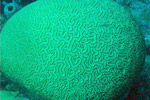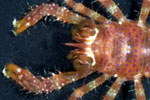The U.S. tropical aquarium market poses problems and opportunities for conservation, according to a landmark study published in the open-access journal PLoS ONE. The study reviewed import records in the U.S. for one year (2004-2005) and found that over 11 million wild tropical fish from 1,802 species were imported from 40 different countries. While the number of fish species targeted surprised researchers, the total amount of fish imported was actually less than expected.
“Coral reefs globally are already under tremendous stress from climate change, habitat destruction and pollution. Poor harvest practices of tropical fish for the home aquarium trade can add to that decline, yet when done right, it can help counter those effects provided the economic benefits of long term sustainability are met locally,” co-author Michael Tlusty, director of research at the New England Aquarium, said in a press release.
Still, concerns remain about overharvesting, damaging harvesting practices, the spread of disease, and invasive species. The top three nations trading to the U.S. were Indonesia, the Philippines, and Sri Lanka.
“There is a delicate balance between the global demand for aquarium fish, and its environmental and economic impacts,” lead author Andrew Rhyne, with Roger Williams University and the New England Aquarium, said. “Without mechanisms in place designed specifically to monitor the aquarium fish trade, we will never have a keen understanding of how it impacts our oceans and the global economy.”
The researchers call for a change in how wildlife imported data is reported in the U.S., including urging a real time system which they argue fix many of the problems in the current system. The researchers also note that a rise of interest in tropical aquariums could lead to rising awareness on the impacts of greenhouse gas emissions, which are imperiling the world’s coral reefs through ocean acidification and climate change.
CITATION: Rhyne AL, Tlusty MF, Schofield PJ, Kaufman L, Morris JA Jr, et al. (2012) Revealing the Appetite of the Marine Aquarium Fish Trade: The Volume and Biodiversity of Fish Imported into the United States. PLoS ONE 7(5): e35808. doi:10.1371/journal.pone.0035808
Related articles
Carnage in Komodo: world-famous reef destroyed by poachers’ bombs
(04/25/2012) Illegal fishermen have been utilizing homemade bombs to kill fish off the coast of Komodo Island, Indonesia, reports the Associated Press (AP); the bombs have not only injured fish populations in the protected area, but has also blasted biodiverse coral reefs popular with tourists. A scuba teacher told the AP that a section of Tatawa Besar coral reef, a popular diving spot, had been “blasted, ripped off, turned upside down.”
Featured video: Google Earth highlights imperiled coral reefs around the world
(04/18/2012) A new video by Google Earth and the World Resources Institute (WRI) highlights the world’s many endangered coral reefs. A part of the WRI’s Reefs at Risk program, the video highlights regional and global threats to the oceans’ most biodiverse ecosystem. According to the WRI, a stunning 75 percent of the world’s reefs are currently threatened.
Carbon emissions paving way for mass extinction in oceans
(03/05/2012) Human emissions of carbon dioxide may be acidifying the oceans at a rate not seen in 300 million years, according to new research published in Science. The ground-breaking study, which measures for the first time the rate of current acidification compared with other occurrences going back 300 million years, warns that carbon emissions, unchecked, will likely lead to a mass extinction in the world’s oceans. Acidification particularly threatens species dependent on calcium carbonate (a chemical compound that drops as the ocean acidifies) such as coral reefs, marine mollusks, and even some plankton. As these species vanish, thousands of others that depend on them are likely to follow.
Researchers challenge idea that marine reserves promote coral recovery

(11/09/2011) Fleshy whorls of thick brown algae blanket the once-vibrant corals in Glover’s Reef, Belize. According to a controversial study published August 14 in the journal Coral Reefs, a decade of marine reserve protection has failed to help these damaged Caribbean corals recover.
Unanimous agreement among scientists: Earth to suffer major loss in species

(11/09/2011) The thylacine, the dodo, the great auk, the passenger pigeon, the golden toad: these species have become symbols of extinction. But they are only the tip of the recent extinction crisis, and according to a survey of 583 conservation scientists, they are only the beginning. In a new survey in Conservation Biology, 99.5 percent of conservation scientists said a serious loss in biodiversity was either ‘likely’, ‘very likely’, or ‘virtually certain’. The prediction of a significant loss of species is not surprising—scientists have been warning for decades that if global society continues with business as usual the world will suffer from mass extinction—what is perhaps surprising is the practically unanimous expectation that a global biodiversity decline will occur.
Coral reef biodiversity may be vastly underestimated

(11/03/2011) Researchers with the Smithsonian have catalogued almost as many crab species on tropical coral reef bits measuring just 20.6 square feet (6.3 square meters) as in all of Europe’s seas, finds a new paper in PLoS ONE. The team used DNA barcoding to quickly identify a total of 525 crustaceans (including 168 crab species) from dead coral chunks taken from seven sites in the tropics, including the Indian, Pacific and Caribbean oceans.













